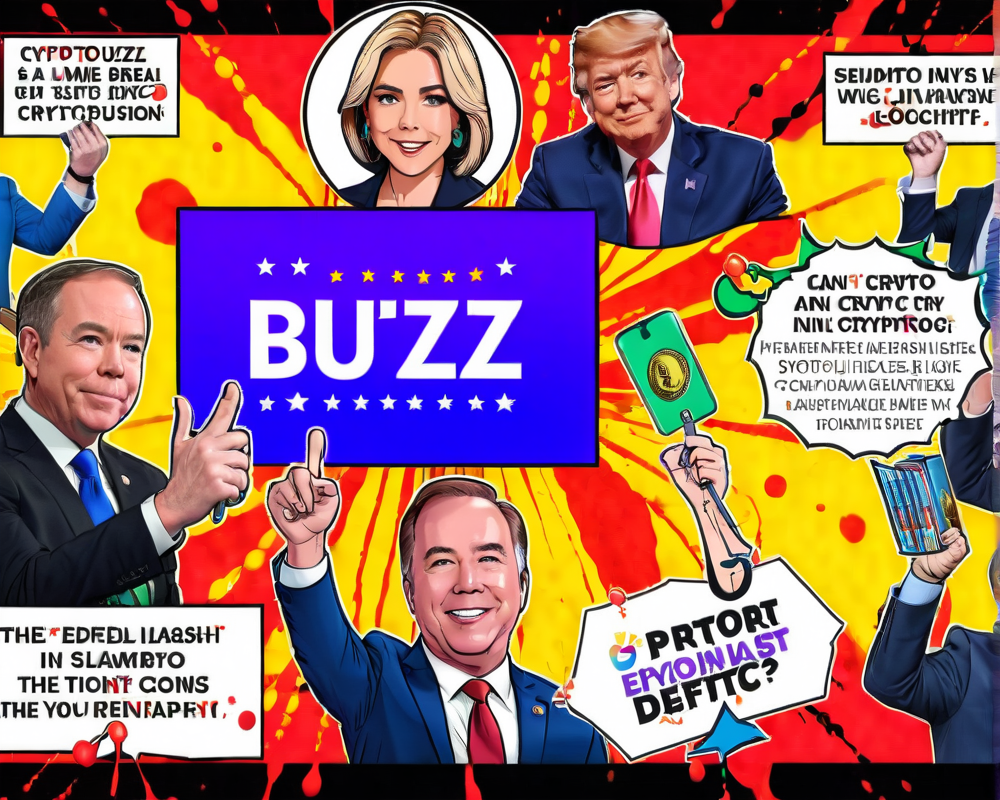The crypto rollercoaster isn’t merely a wild ride fueled by speculative trading. There’s a political angle stirring the pot, and it seems like all kinds of folks are finally interested in hopping on board. The former Congressman and acting White House Chief of Staff, Mick Mulvaney, thinks a federal law on digital assets might just make its way through Congress soon. And believe it or not, it’s not just the usual partisan drama that’s leading the charge.
The Unlikely Allies of Crypto
Mulvaney pointed out that neither party has a monopoly on crypto advocacy. In fact, he sees it as a rare bipartisan issue. Republicans and Democrats alike are curious about what digital currencies bring to the table. According to Mulvaney:
“Democrats aren’t all on one side; Republicans aren’t all on the other side.”
This surprising consensus springs from a shared skepticism of centralized banking systems, concerns about Big Tech, and a mutual interest in blockchain technology. Talk about bringing the nation together—who would’ve thought crypto would be the glue?
DeFi: The Hero We Didn’t Know We Needed?
Mulvaney is no Johnny-come-lately to the blockchain party; he co-founded the Congressional Blockchain Caucus back in 2016. He sees decentralized finance (DeFi) as a shiny knight in digital armor, swooping in to rescue the crypto world from the dragons of fraud and mismanagement that have plagued centralized entities.
- He claims fraudsters find it much easier to operate in centralized systems like Mt. Gox or FTX.
- On the flip side, DeFi adds a layer of transparency that makes foul play more difficult.
- Plus, integrating compliance processes like Know Your Customer (KYC) and Anti-Money Laundering into DeFi means regulators might start to ease up too.
When Disaster Strikes: Is It Regulation or Management?
With crypto’s rising prominence, the conversation inevitably drifts to recent banking blunders, particularly the collapse of Silicon Valley Bank. Criticism flew left and right, with some lawmakers even pointing fingers at the Trump administration. However, Mulvaney argues that tighter regulations wouldn’t have made a difference:
“I think it would have happened anyway.”
This speaks volumes about the complexity of economic crises, suggesting that the real issues may lie in bank management rather than in the regulatory framework itself.
Cutting Through the Red Tape: Compliance Meets Innovation
Enter Astra Protocol, where Mulvaney now lends his expertise. This innovative platform aims to redefine compliance in the ever-evolving crypto landscape. In a world where anonymity and regulatory scrutiny frequently clash, Astra employs a unique strategy:
- By verifying identities without exposing sensitive information, they maintain an equilibrium between privacy and compliance.
- They allow DeFi protocols to validate users while implementing strict KYC measures, all without sacrificing users’ anonymity.
Mulvaney envisions a future where trust can coexist with technology—an ambitious but fascinating prospect.
The Future of Crypto: Potential and Pitfalls
Despite the current administration’s cautious approach to cryptocurrencies, Mulvaney remains optimistic. He contends that the technology itself isn’t the problem, but the surrounding fears—especially from countries worried about losing control over their currencies—could be the biggest hurdle.
“Crypto is actually a lot better for law enforcement than cash because while it’s anonymous, it’s still traceable.”
That’s an unexpected twist, suggesting that crypto might actually be a boon for transparency rather than a bane.
The Gold Standard: Bitcoin, Gensler, and What Lies Ahead
Mulvaney’s interest in Bitcoin sparked almost a decade ago; he stumbled upon it while attending a conference on the gold standard. You know, the good old days, when currency was tied to something tangible—unlike today’s press-a-button-to-print strategy. Today, he’s wary of the SEC’s Gary Gensler steering the crypto conversation, expressing a desire for balance in regulatory approach.
So, as we inch closer to potential legislation, one question lingers: can our elected officials learn to work together on something as enigmatic as digital assets? Only time will tell, but one thing’s for sure: the crypto conversation is only just getting started.




